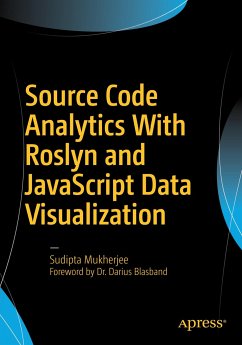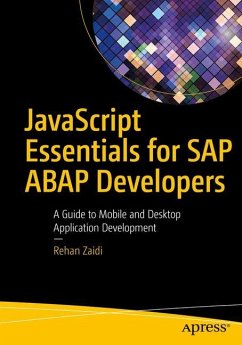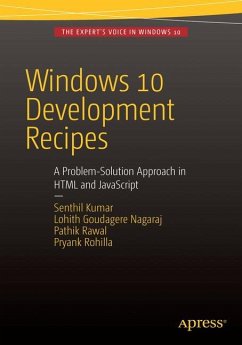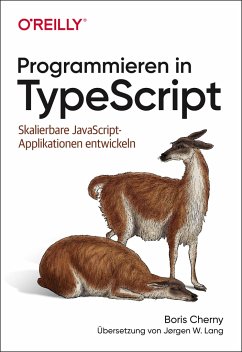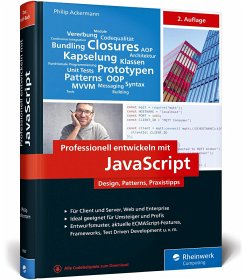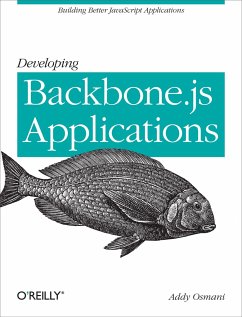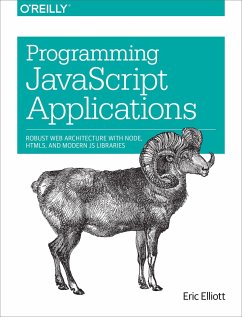
Physics for JavaScript Games, Animation, and Simulations
with HTML5 Canvas

PAYBACK Punkte
29 °P sammeln!
Have you ever wanted to include believable physicalbehaviors in your games and projects to give them that extra edge? Physics for JavaScript Games, Animation, andSimulations teaches you how to incorporate real physics, such as gravity,friction, and buoyancy, into your HTML5 games, animations, and simulations. Italso includes more advanced topics, such as particle systems, which areessential for creating effects such as sparks or smoke. The book also addressesthe key issue of balancing accuracy and simplicity in your games andsimulations, and the final chapters provide you with the information ...
Have you ever wanted to include believable physical
behaviors in your games and projects to give them that extra edge? Physics for JavaScript Games, Animation, and
Simulations teaches you how to incorporate real physics, such as gravity,
friction, and buoyancy, into your HTML5 games, animations, and simulations. It
also includes more advanced topics, such as particle systems, which are
essential for creating effects such as sparks or smoke. The book also addresses
the key issue of balancing accuracy and simplicity in your games and
simulations, and the final chapters provide you with the information and the
code to make the right choice for your project.
Physics for JavaScript
Games, Animation, and Simulations assumes you have a basic knowledge of
JavaScript and HTML5. However, no previous knowledge of physics is
required - only some very basic math skills. The authors present everything from
basic principles to advanced concepts in an approachable way, so you'll be able
to follow the logic and easily adapt the principles to your own applications.
The book is packed full of practical examples of how you can
apply physics to your own games and applications.
Spring behaviors can be used for anything from tweaking lowrider suspension to
creating cloth simulation; flotation
mechanics enable the simulation of submersibles or dirigibles; you can even create
your own solar system with accurate orbits and gravity. It doesn't matter if
you're modeling the Lorentz force in an electromagnetic field or you're
modeling the lift force in a flight simulator, Physics for JavaScript Games, Animation, and Simulations enables
you to fill your games and applications with accurate and realistic effects.
behaviors in your games and projects to give them that extra edge? Physics for JavaScript Games, Animation, and
Simulations teaches you how to incorporate real physics, such as gravity,
friction, and buoyancy, into your HTML5 games, animations, and simulations. It
also includes more advanced topics, such as particle systems, which are
essential for creating effects such as sparks or smoke. The book also addresses
the key issue of balancing accuracy and simplicity in your games and
simulations, and the final chapters provide you with the information and the
code to make the right choice for your project.
Physics for JavaScript
Games, Animation, and Simulations assumes you have a basic knowledge of
JavaScript and HTML5. However, no previous knowledge of physics is
required - only some very basic math skills. The authors present everything from
basic principles to advanced concepts in an approachable way, so you'll be able
to follow the logic and easily adapt the principles to your own applications.
The book is packed full of practical examples of how you can
apply physics to your own games and applications.
Spring behaviors can be used for anything from tweaking lowrider suspension to
creating cloth simulation; flotation
mechanics enable the simulation of submersibles or dirigibles; you can even create
your own solar system with accurate orbits and gravity. It doesn't matter if
you're modeling the Lorentz force in an electromagnetic field or you're
modeling the lift force in a flight simulator, Physics for JavaScript Games, Animation, and Simulations enables
you to fill your games and applications with accurate and realistic effects.






